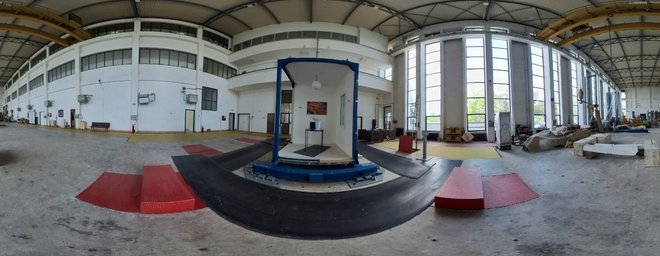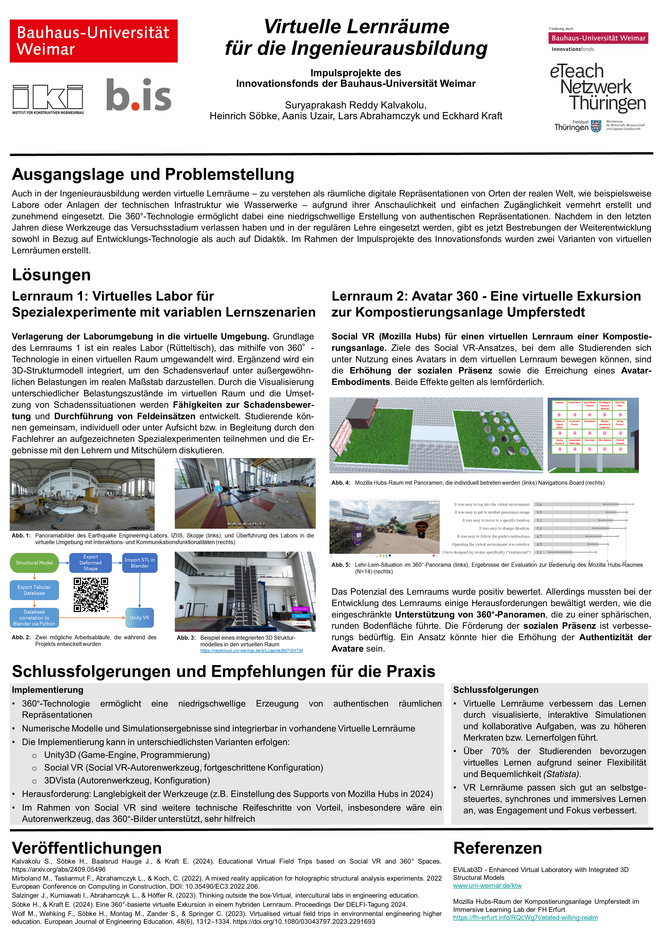

EViLab3D - Enhanced Virtual Laboratory with Integrated 3D Structural Models
EViLab3D aims to make a significant contribution to the digital enrichment of learning and teaching concepts in hybrid form. Participation in experiments enables students to apply their theoretical knowledge and skills in solving complex practical tasks, which supports the overall understanding of the subject matter. Participation is often not possible, especially in the case of special and large-scale tests. Virtual reality offers an elegant and efficient way for students to take part in experiments without affecting the realism and correctness of the experiment.
In part of the previous projects, virtual laboratories were created in which students could take part in recorded special experiments under supervision (relocation of the laboratory environment to the virtual environment) and discuss the results with the teachers and fellow students. The virtual experiments were moved to a 3D room, the possibility of joint exchange (multi-user) with desktop computers or VR glasses in the context of lectures were created and innovative learning status queries e.g., questions about the spatial-temporal assignment were worked out. In addition, individual and group tasks were assigned to the students to test the level of knowledge and understanding.
In continuation, this project will focus on the testing and optimization of the developed virtual platform for efficient implementation, usability and reproducibility. The virtual platform will be evaluated and further optimized to develop and/or improve new and/or existing e-learning functionalities. The focus of this teaching innovation project is the integration of 3D models to abstract complex processes, 3D realistic animations to illustrate the progression of damage under extraordinary loads on a real scale, visualization of different stress and load states in virtual space, and implementation of damage situations (e.g. 2021 flood in NRW and RLP) to develop skills for damage assessment and carrying out field operations.


